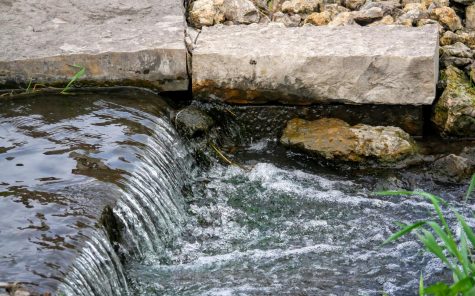Take Earth Day to reflect on how our actions affect the planet
April 22, 2020
Wednesday marks the 50th year Earth Day is being celebrated in the U.S. since its creation in 1970. During the current health crisis, however, the holiday that celebrates the great outdoors of our planet will occur while people stay indoors during a global pandemic.
There have been some improvements to Earth’s environment as a result of international quarantines and economic closures to prevent the spread of COVID-19. People should reflect on this on Earth Day and realize how their actions affect the Earth.
Since people have been spending less time outside and traveling — the environment has benefitted from less pollution.
Nitrogen dioxide levels in the atmosphere of Eastern and Central China have lowered 10 to 30% since the beginning of 2020, according to NASA. Factories and plants in Eastern Asia near Wuhan, China, the origin of the COVID-19 outbreak, shutting down resulted in fewer emissions being produced in the area due to the reduced burning of coal.

Major reductions in air pollution show the direct effects that humans’ actions have on the environment. People should be striving to limit the amount of emissions they put into our atmosphere. Solutions like solar energy and electric cars should continue to become more regularized and accessible to help achieve this goal.
The protection of the environment also has the potential to protect human lives.
“The reductions in air pollution in China caused by this economic disruption likely saved twenty times more lives in China than have currently been lost due to infection with the virus in that country,” Marshall Burke, assistant professor of Earth System Science at Stanford University, wrote March 17 in a blog for researchers who study the environment, G-FEED.
In Italy, where there has been one of the severe outbreaks of COVID-19, quarantine orders resulted in a lack of boats in the Venice canals. The water in the canals became the clearest in almost 60 years, according to Venice city officials.
“The water now looks clearer because there is less traffic on the canals, allowing the sediment to stay at the bottom,” a spokesperson for the Venice mayoral office said in a March 16 CNN interview.
Italy has also recorded lower levels of nitrogen dioxide in the air similar to the situation in China, according to the spokesperson.
International government strategies to reduce the amount of air pollution around the globe are vital for preserving our planet. These climate change action agreements also show how nations can come together to protect one thing we all share: the Earth.
President Donald Trump announced in 2017 that the U.S. would be pulling out of the 2015 Paris Agreement, which was a plan drafted by members of the United Nations to mitigate greenhouse gas emissions. This decision was poor and promotes that idea that taking care of the Earth is not a top priority for the U.S.
A global pandemic is the current cause for some restoration of the health of the planet, and these effects can be greater if societies can find ways to maintain aspects of quarantine that may help heal the Earth once life returns to normal.
Many businesses may have learned that it’s possible to operate with some staff working from home. Keeping some workers at home once quarantines are over would reduce the amount of people who would normally commute to work and burn gas.
Another result of the pandemic has been a mentality of wanting to conserve important resources and products. Toilet paper has been a product that people have stocked up on, which may have resulted in others having to conserve their own supply of toilet paper. Limiting our societies’ intense consumerism in the wake of the economic shutdown may result in more responsible buying habits to conserve Earth’s natural resources.

This Earth Day especially, humans should become more conscious of how the actions we take in our life affect the life of the Earth. If the planet can begin to thrive when we are locked away in our homes, we should be able to find ways to coexist with and respect the Earth once we restart our economy and society.







